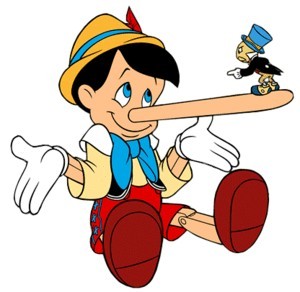 So having just come off a hugely busy week, I finally got around to extending the thought process behind what ‘Satisfaction’ is and how you measure it.
So having just come off a hugely busy week, I finally got around to extending the thought process behind what ‘Satisfaction’ is and how you measure it.
Firstly, I think you have to ignore about 99% of what you find on the Internet regarding Satisfaction research. Most of it is in the form of White Papers written by companies pedaling their ideas. Which aren’t all bad, but don’t really form a body of coherent knowledge.
So I started with mainly academic papers and published books. There are literally a ton of these. And as you go through some of the very early ideas in this space, you get a feel for how thinking has changed over the last 30 years – from the pervasive use of psychological theories of behavior to a more business oriented approach linked closely to a resurgent Loyalty movement.
Not that Loyalty is bereft psychological analysis, but it seems that 30 years ago, when Social Psychology was emerging as a discipline, its application to business and customer interaction was very much in vogue.
One of the themes that kept cropping up, and a good starting point I believe to understanding Satisfaction, is the theory of Cognitive Dissonance (CD). Or why people ‘lie’ – telling you something that doesn’t necessarily match the experience they just had.
There is a rich history of research on CD. It began with Leon Festinger and his investigation into the belief persistence of a doomsday cult, and continues with reviews and essays on the 50+ year history of the theory.
Cognitive Dissonance impacts the measurement of Satisfaction because we justify choice. If I use the same hotel chain, fly the same airline or drive the same model of car week after week or year after year, my behavior tells me something about how I should feel. I chose to do these things. No one had a gun at my head. If I chose them, they must be satisfying. Why would I choose them otherwise?
Now I am not going to pretend this feeling is robust in the face of bad rooms, awful service or a car breaking down every other day, but it is persistent. Any time we hold competing, seemingly ‘at odds’ cognition’s, we seek to reduce that tension. We justify why we use that service/brand. It can be a story we tell ourselves – I hate the cable company but they have a monopoly – or we convince ourselves we’re more satisfied than we are – that bad service was just a one off, that expensive transmission reconstruction was the price you pay for owning such a cool car.
These stories are ways to reduce the tension between what we do and feel. The closer these two are aligned, the more content we are.
This has a tangible effect on how we rate the service we experienced or the product we bought. But this effect isn’t consistent across all products or services. Just as research into CD suggests dissonance between your self-view and your behaviours produces the strongest effects (such as making a truthful person lie), lack of emotional or real investment make the effect weak. I don’t care to justify my pasta sauce purchase if it’s bad, I didn’t invest much time into it anyway.
The upshot of this is that we can ‘lie’ about our level of satisfaction if the time and emotional investment is large enough to make it worthwhile.
I don’t quite know what this means for the best way to ‘measure satisfaction’ – but I’m thinking it has to be important.
6 Responses to “Why people ‘lie’”